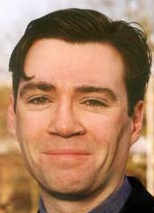Minister of State, Department of Health
The House of Commons
UK
Dear Minster Burnham
Your comments relate to urgent concerns raised by many including The Health Select Committee 18 months ago. MP Hosie seemed upset by the rest of your response, since you suggested no time-scale to implement any sort of plausible or honest review of the MHRA. Given your emphasis on transparency Minister, might we consider the legal and moral implications of a small state secret.
Let me paint a picture:
- Let us suppose you were a doctor Mr Burnham:
- You are standing there, syringe in hand, about to inject a potentially toxic drug into a patient.
- You do so in the knowledge that the MHRA, your government agency, has given a stamp of approval.
- It would be your fundamental right to know why the MHRA approved that drug before inflicting potential harm on a fellow human being. You might imagine you would have a right to know that the MHRA scrutinised evidence, what named persons were involved, and how precisely those persons were qualified. You might imagine that it should be your moral obligation to know these things.
So let us consider a small secret
Mr Ian Oulsnam is operations manager of the GCP inspectorate of the MHRA. This is a key role in this public body. He makes pronouncements about matters of science and medicine. He makes decisions which impact on life and death. He "investigates" matters upon which patients and doctors depend. He was involved in the MHRA self-"investigation" of the TGN1412 disaster. He makes public statements to the press on behalf of the MHRA. He received parliamentary instruction to conduct the fascinating "investigation" of P&G's conduct in Sheffield. He informed me that he "has a "relevant" university degree and a postgraduate degree in statistics.I was thus surprised to note on the MHRA website a Freedom of Information request from Mr RC (MHRA FOI 06/185). The MHRA declined to convey a list of Mr Oulsnam's scientific publications [on Pubmed there are none]. The MHRA declined to say what university degrees Oulsnam has (if any). It was stated this is personal information. In the same spirit of transparency, the MHRA refused to sign this FOI response. When asked repeatedly to reply in writing, they posted an unsigned printout of their Emailed response to RC.
 | Oulsnam then made a scientifically incorrect and bizarre statement to the press about a drug. That statement was reproduced by yourself in correspondence to a MP. I therefore repeated the FOI request. I did not ask whether Oulsnam felt himself qualified to do his job. I simply wished to know what precise university degree(s) Oulsnam has (if any), and at which University. This was again refused on the basis that it is "personal information". |
The REQUEST (FOI 06/303): "Mr Oulsnam stated to me that he has a degree, and that he also has postgraduate degree in statistics"..... "it is not clear whether I was misled. I request under the FOI a list of the university degrees and postgraduate university qualifications held by Mr Ian Oulsnam of the MHRA (and the names of awarding institutions)."
The MHRA RESPONSE (FOI 06/303): "The full details of Mr Oulsnam's qualifications are not released as this is considered to be personal information." [the absence of "full details" in MHRA language = "no details"]
This is bad
Given Mr Oulsnam's job and public pronouncements, this is not personal information. My refusal to convey my degree(s) would be a disciplinary offense. The DoH website urges patients to insist that surgeons, doctors, dentists, nurses and beauty therapists disclose their qualifications. Universities themselves consider degree awards to be public information (eg here, here, here, here, here). Even professional hypnotists are required to make their qualifications available upon request!Question 1:
 | Would YOU inject the drug Mr Burnham? |
Question 2: Is this behaviour restricted to the MHRA?
 | A similar FOI request to the Water Inspectorate (DEFRA) requesting degrees of an official yielded a remarkably comprehensive response (within 2 days) listing all degrees, Universities, subjects taken and dates [pdf][image]. I feel strangely confident when I drink water. |
Yet the MHRA, which (unlike the Water Authority) uses an intermediary - doctors - to administer potential harm to other humans is as transparent as mud. In another instance the MHRA refused to provide any names of officials who had made decisions about Vioxx on the laughable basis that this might expose them to animal rights activists!
There will always be potential concerns about the training, common sense and conflicts of interest of public officials. But the point is that you, as that syringe-holding doctor are not even allowed to know.
Something is wrong Minister Burnham.
Yours Sincerely
Dr Aubrey Blumsohn
and if it matters .... MB BCh, PhD, MSc, BSc hons, MRCPath
Earlier|Later|Main Page

5 comments:
Brilliant. Please post the reply.
Aubrey,
You and I both know it would be easier to shake hands with the President of the Unied States of America than it would to get a straight forward answer from the MHRA.
I used to get frustrated at their constant claims that they couldn't release certain information under the ruling of section blah blah - Now I just laugh.
They are running... and they have nowhere to hide.
The Truth WILL out.
Keep up the hounding
Bob
As an FOI addict, I realise that personal information is exempt. I ask you whether you have actually read the Act yourself.
With respect anonymous so called "FOI addict" - this has nothing to do with FOI. FOI is yet another convenient mechanism to demonstrate system malfunction.
Even in the absence of any FOI legislation the conveying of such fundamental information - about the ability of public officials in charge of our safety to do their jobs - would be mandatory.
Of course doctors prescribing drugs must be allowed to know how those who make decisions about these drugs are qualified to do so (likewise for public officials individuals who make wildly incorrect scientific statments to the press on our behalf). Please read and try to understand the post again. If we accept you comment we would accept that you are not allowed to know whether your doctor is qualified, or whether your local pharmacist has a pharmacy qualification.
Of course the MHRA don't wish to respond despite empty promises of tranparency - and the reasons are obvious. We already know the individual in question has no relevant scientific publications. I suspect (but am not allowed to know) that he has no particularly relevant University degree either. That is why they have no credibility at all - zero, zip, nothing.
Would you inject the drug into a fellow human being "FOI addict"?
Aubrey
In the United states:
"the courts have provided substantial direction regarding the privacy of public officers employees. It is clear that public officers and employees enjoy a lesser degree of privacy than others, for it has been found in various contexts that public officers and employees are required to be more accountable than others. Further, with regard to records pertaining to public officers and employees, the courts have found that, as a general rule, records that are relevant to the performance of a their official duties are available, for disclosure in such instances would result in a permissible rather than an unwarranted invasion of personal privacy [see e.g., Farrell v. Village Board of Trustees, 372 NYS 2d 905 (1975); Gannett Co. v. County of Monroe, 59 AD 2d 309 (1977), aff'd 45 NY 2d 954 (1978); Sinicropi v. County of Nassau, 76 AD 2d 838 (1980); Geneva Printing Co. and Donald C. Hadley v. Village of Lyons, Sup. Ct., Wayne Cty., March 25, 1981; Montes v. State, 406 NYS 2d 664 (Court of Claims, 1978); Powhida v. City of Albany, 147 AD 2d 236 (1989); Scaccia v. NYS Division of State Police, 530 NYS 2d 309, 138 AD 2d 50 (1988); Steinmetz v. Board of Education, East Moriches, Sup. Ct., Suffolk Cty., NYLJ, Oct. 30, 1980); Capital Newspapers v. Burns, 67 NY 2d 562 (1986)]. Conversely, to the extent that records are irrelevant to the performance of one's official duties, it has been found that disclosure would indeed constitute an unwarranted invasion of personal privacy [see e.g., Matter of Wool, Sup. Ct., Nassau Cty., NYLJ, Nov. 22, 1977]. "
With regard to the qualifications of a public employee, if, for example, an individual must have certain types of experience, educational accomplishments, licenses or certifications as a condition precedent to serving in a particular position, records containing those kinds of information would in my view be relevant to the performance of the official duties of not only the individual to whom the record pertains, but also the appointing agency or officers. In a different context, when a civil service examination is given, those who pass are identified in "eligible lists" which have long been available to the public. By reviewing an eligible list, the public can determine whether persons employed by government have passed the appropriate examinations and met whatever qualifications that might serve as conditions precedent to employment. In my opinion, to the extent that records sought contain information pertaining to the requirements that must have been met to hold a position, they should be disclosed, for I believe that disclosure of those aspects of documents would result in a permissible rather than an unwarranted invasion of personal privacy. Disclosure represents the only means by which the public can be aware of whether the incumbent of the position has met the requisite criteria for serving in that position.
Although some aspects of one's employment history may be withheld, the fact of a person's public employment is a matter of public record, for records identifying public employees, their titles and salaries must be prepared and made available under the Freedom of Information Law [see §87(3)(b)]. However, information included in a document that is irrelevant to criteria required for holding the position, such as grade point average, home address, social security number and the like, could in my opinion be deleted prior to disclosure of the remainder of a record to protect against an unwarranted invasion of personal privacy.
See: http://www.dos.state.ny.us/coog/ftext/f8649.htm
There have been some instances where information has been denied even where apparently relevant to public duties, with some lack of consistency.
The issue you raise of third party action (as in the case of the doctor) based on confidence in others is interesting.
Post a Comment